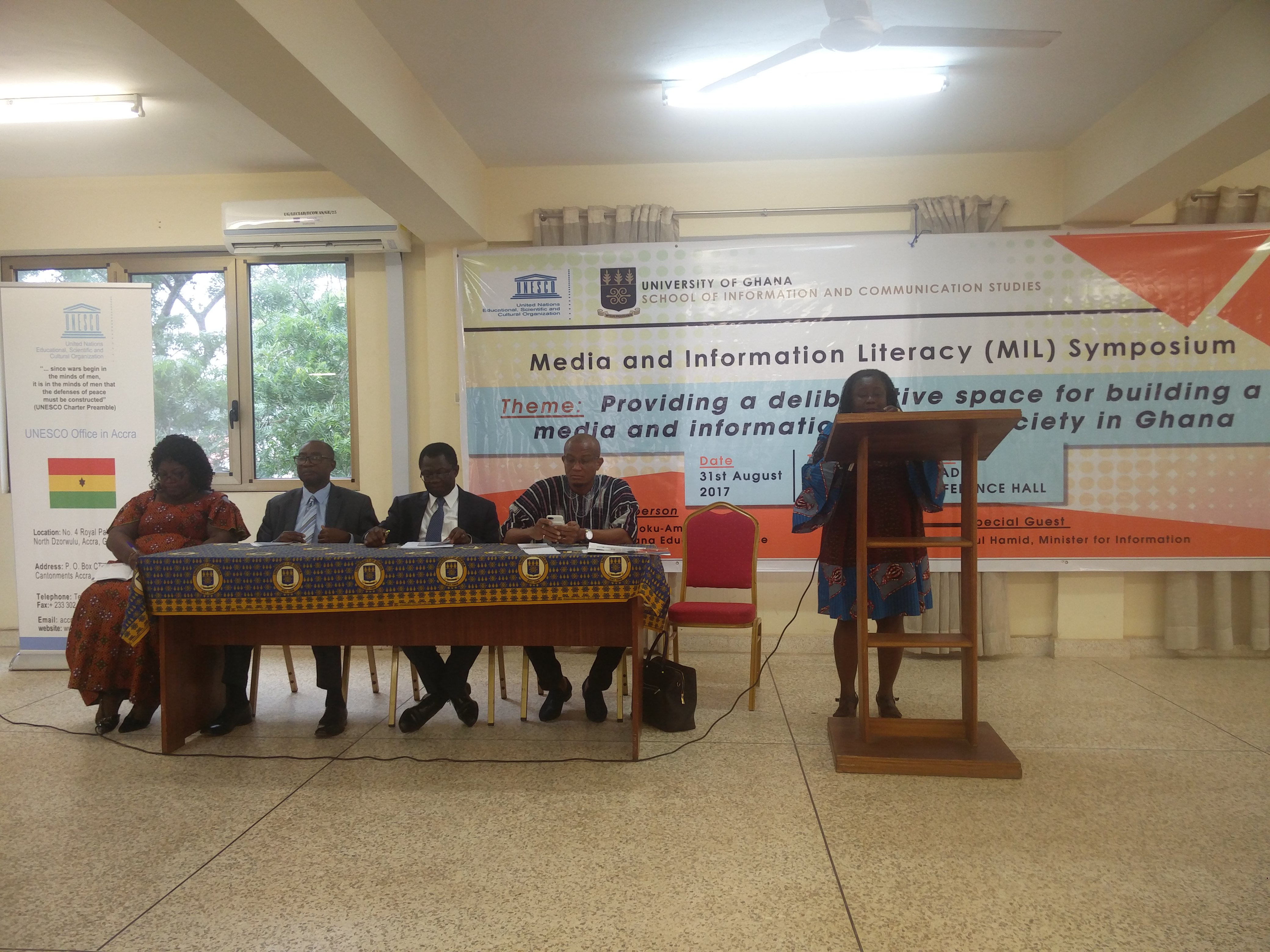Mr. Mustapha Abdul-Hamid, the Minister of Information, has said the flow of information in any democratic society is crucial because that differentiates a democratic society from a non-democratic one.
He said the era of centralising the flow of information was over as there were multiple channels of information the country currently enjoy.
‘‘In today’s world, democracy, freedom of speech and association is the way to go and, therefore, whether we like it or not we’re in an era whereby we cannot centralise information because the democratisation of information is imperative,’’ he said.
Mr Abdul-Hamid said this at a Media and Information Literacy Symposium organised by the School of Information and Communication Studies, University of Ghana, on Thursday.
It was on the theme: ‘‘Providing a Deliberate Space for Building a Media and Information Literate Society in Ghana,’’ which brought together key stakeholders in media and information management including journalists, senior lecturers and educationists.
The event was funded by UNESCO, which aimed at bringing together key stakeholders interested in spearheading Media and Information Literacy (MIL) efforts in the country to deliberate on building a coalition to that effect.
Mr Abdul-Hamid said people should be information literate in order to decipher credible information from falsehood to enable them make informed decisions to enhance the democratisation process.
To this end, he said, the Government had plans of building the capacity of media practitioners so that they would be well positioned to disseminate credible information to the populace.
As much as information flow was important in democratic societies, there ought to be rules, procedures and guidelines on how to generate, manage and consume it in order not to harm society, he said.
Professor Audrey Gadzekpo, the Dean of the School of Information and Communication Studies, said the importance of the forum could not be over-emphasised as it would help media practitioners to access, analyse and evaluate information.
She said there was no media literacy coalition in Ghana, therefore, as scholars in the field of media and information, they ought to address that shortfall for practical and scholarly reasons.
Prof. Gadzekpo said people needed to be educated on the dangers of downloading certain information and images like children pornography that may lead to ridiculing such children.
She said being members of social media groups made people to be susceptible to certain prohibited information, to which they may not have any control over, and may eventually land them into trouble adding that such materials should be deleted as soon as practicable.
Prof. Gadzepko said there should be MIL curricula from the basic, secondary and tertiary levels of the educational structure that would inculcate such values in the people so that there would be more media and information literate citizens.
Mr Chido Onumah, the Coordinator of the Africa Centre for Media and Information Literacy, Abuja, Nigeria, in a keynote address, said MIL was vital for sustaining democratic societies and, therefore, the public must equip themselves with the relevant tools in order to take advantage of the subject matter.
He said MIL was crucial for tackling challenges in the global sphere and ensuring peaceful co-existence, adding; ‘‘Information affects our attitudes and how well we can take advantage to better our lives’’.
Mr Onumah urged the Government to develop interest in MIL by developing curricula to enhance citizens’ understanding and proficiency in that field of knowledge, adding that other countries had already taken keen interest by building the capacities of their citizens.
He said UNESCO had also developed training manuals in MIL and, therefore, interested media practitioners, individuals and organisations could access them online to learn more on it.
Source: https://www.ghanaweb.com
